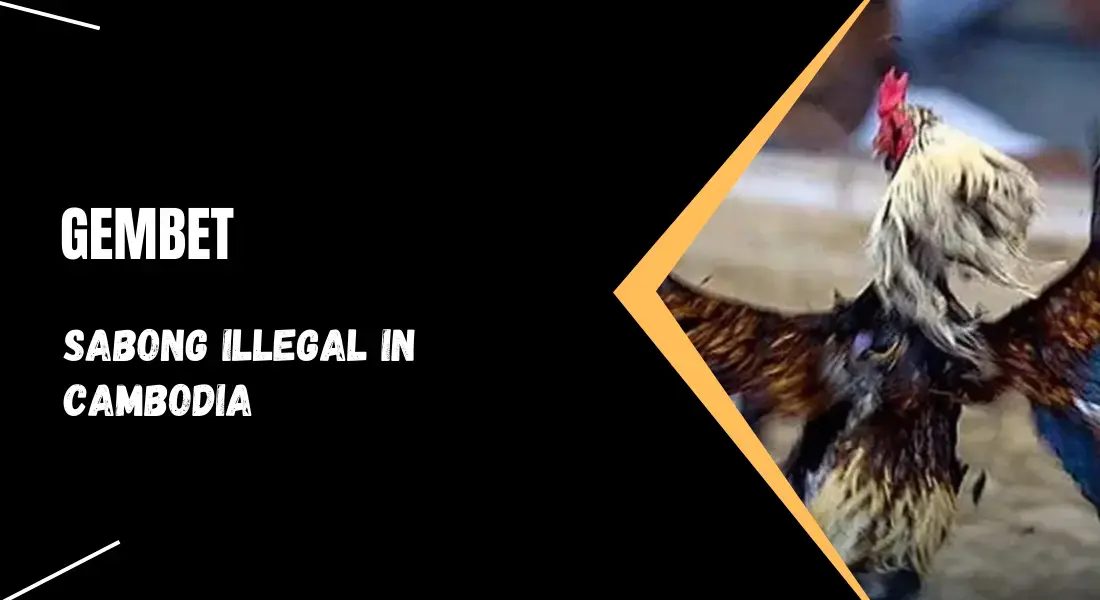Sabong, a traditional form of cockfighting, has been a deeply ingrained cultural practice in Cambodia for centuries. With roots that stretch back to the Angkor Empire, this blood sport has long been considered a national pastime, closely associated with Cambodian identity and heritage. However, in recent years, Sabong has become the subject of increasing controversy due to concerns over animal cruelty and unlawful gambling, prompting widespread debate about its place in modern Cambodian society.
Ready to join the action? Sign up now and get your welcome bonus! New players can enjoy a 100% match bonus on their first deposit plus 50 free spins.

The Cultural Significance of Sabong in Cambodia
Sabong, which involves pitting roosters against each other in brutal fights that often end in death, is not just a sport but a cultural phenomenon in Cambodia. Historically, it was a pastime enjoyed by kings and commoners, seen as a display of bravery, strength, and skill. The roosters used in these fights were often bred and trained for months, if not years, with great care, making the sport a symbol of honor and tradition.
The practice of Sabong has been passed down through generations, with many Cambodians viewing it as an integral part of their cultural heritage. In rural areas, cockfights were once common at festivals and local gatherings, where they served as a form of entertainment and socialization. The sounds of roosters crowing and the crowd’s excitement have long been a part of Cambodian life.
However, this cultural significance does not negate the practice’s darker aspects, which have come under increasing scrutiny in recent years.
Read our guide on where to bet on sabong online.
Concerns Over Animal Cruelty
One of the primary concerns surrounding Sabong is the cruel treatment of the animals involved. The roosters, explicitly bred for fighting, are often subjected to inhumane conditions. They are kept in small, cramped cages, deprived of proper care, and subjected to physical modifications such as the removal of their combs and wattles to reduce bleeding during fights.
In preparation for battles, these roosters are sometimes injected with steroids, stimulants, and other drugs to enhance their aggression and endurance. The fights themselves are brutal, often resulting in severe injuries or death for one or both of the birds. The suffering endured by these animals has led many animal welfare organizations to condemn Sabong as a form of animal abuse that should be outlawed.
The cruelty involved in Sabong extends beyond the physical harm to the roosters. The psychological stress and fear they experience during these fights is profound. Animal rights activists argue that subjecting any creature to such violence purely for entertainment is profoundly unethical and contrary to the principles of compassion and respect for all living beings.
Unlawful Gambling and Its Consequences
Another primary concern associated with Sabong is the unlawful gambling that often accompanies the fights. While the cultural aspect of Sabong might be emphasized, large sums of money are frequently wagered on the outcomes of these brutal contests. This gambling is typically illegal, taking place in secret and unregulated environments, which makes it a breeding ground for corruption, organized crime, and other illicit activities.
The high stakes involved in Sabong gambling can lead to severe social and economic consequences. Families may find themselves torn apart by debt and financial ruin, while the lure of easy money can draw vulnerable individuals into a cycle of addiction. Moreover, the illegal nature of these gambling activities means that there is little to no protection for those who participate, leaving them at the mercy of unscrupulous operators.
The intertwining of Sabong with unlawful gambling not only undermines the social fabric but also poses a significant challenge to law enforcement. Efforts to crack down on illegal gambling rings are complicated by the deep-rooted cultural acceptance of Sabong, as well as the covert nature of these operations.
International Response and Advocacy
The international community has also taken notice of the issues surrounding Sabong. In many countries, cockfighting has been banned outright, with governments citing concerns over animal welfare and the links between cockfighting and illegal gambling. Activist groups worldwide have been vocal in opposing Sabong, calling for a global ban on the practice.
These advocacy efforts have highlighted the need to shift how traditional practices are perceived and regulated in the modern world. While cultural heritage is important, it is also essential to recognize when certain traditions are incompatible with contemporary ethical standards, particularly those related to the treatment of animals and the rule of law.
Related Content: Bet on Live Sabong Now!
Education and Responsible Gambling
To address the concerns surrounding Sabong, education and the promotion of responsible gambling practices are critical. Raising public awareness about the cruelty involved in cockfighting and the dangers of illegal gambling is an essential first step in changing attitudes and behaviors. Educational campaigns can help dispel the notion that Sabong is a harmless or purely cultural activity and instead highlight the real-world consequences for animals and people.
Additionally, promoting responsible gambling practices is vital in mitigating the harm caused by illegal betting. Governments and regulatory bodies should work to ensure that any form of gambling is conducted legally, transparently, and with proper oversight to protect participants and prevent the spread of organized crime.
Legal Reforms and Future Prospects
In Cambodia, Sabong is illegal, but the practice persists in certain areas, often under the radar of law enforcement. The Cambodian government has tried to crack down on unlawful Sabong operations, launching raids and increasing penalties for those caught participating in or organizing these fights. However, enforcement alone may not be enough to eradicate the practice.
The future of Sabong in Cambodia remains to be determined. As the country continues to modernize and integrate with the global community, tension is likely between preserving cultural traditions and upholding contemporary animal welfare and legality standards. Advocacy, education, and legal reforms will play crucial roles in shaping this future.
In conclusion, while Sabong is a practice steeped in history and cultural significance, it is also fraught with ethical and legal challenges. Promoting awareness, encouraging responsible practices, and enacting solid legal measures can help move towards a more humane and accountable approach to animal welfare and gambling in Cambodia.
Related Topic: How to Choose the Best Cockfighter in Sabong in Cambodia.
FAQs
What can be done to address the concerns surrounding Sabong?
Education, responsible gambling practices, and legal reforms are crucial to addressing the concerns surrounding Sabong.
What is the future of Sabong in Cambodia?
Sabong will likely continue to be a topic of controversy, but with education, advocacy, and legal reforms, a more humane and responsible environment for animals and communities can be created.





